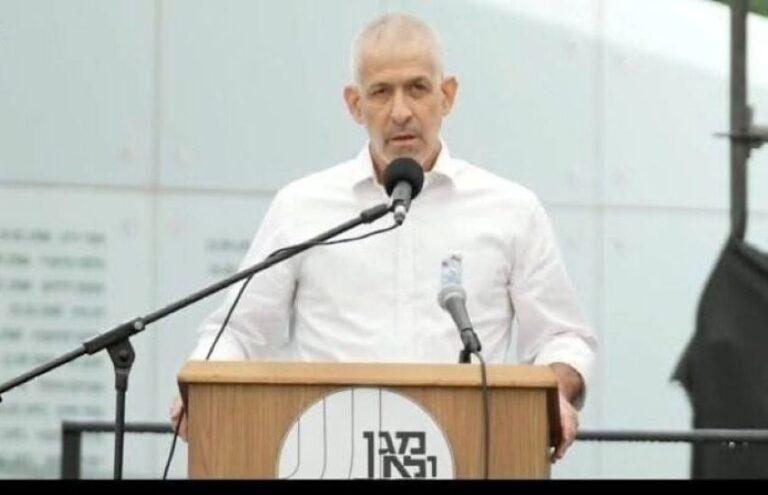 The Jerusalem Rabbinical Election Committee on Tuesday, rejected the petitions that stood between calling for elections for chief rabbis of Yerushalayim after 13 years of the positions remaining vacant. Four of the petitions were rejected outright and the others were addressed. The actions of the vaad clear the way for setting a date for the elections of chief rabbis of the Jewish capital, an announcement that is expected next week.
The Jerusalem Rabbinical Election Committee on Tuesday, rejected the petitions that stood between calling for elections for chief rabbis of Yerushalayim after 13 years of the positions remaining vacant. Four of the petitions were rejected outright and the others were addressed. The actions of the vaad clear the way for setting a date for the elections of chief rabbis of the Jewish capital, an announcement that is expected next week.
It appears the deal that has been in place since Jerusalem Mayor Nir Barkat ran for office remains in place. A dati leumi Ashkenazi will be elected alongside HaGaon HaRav Yitzchak Yosef, a son of Chacham Ovadia Shlita, who will serve as Sephardi rav of the capital. Efforts by the chareidim to have a chareidi Ashkenazi rav seem to be unsuccessful, in no small part due to the very same disunity and small mindedness that led to a chiloni mayor of the capital instead of Rav Meir Porush. An inability or unwillingness to agree on a chareidi Ashkenazi candidate simply strengthens the efforts of the dati leumi community and Mayor Barkat, with the latter agreeing to support the dati leumi candidate for the city’s chief rabbi in exchange for the dati leumi community’s support in his mayoral election bid.
Needless to say Degel HaTorah’s Rav Moshe Gafne and others are not intending to sit back quietly and accept this as a fait accompli, as the city elects a dati leumi chief Ashkenazi rabbi, and this may result in additional petitions to the judicial system and more delays. Gafne stated in the past that if left will no alternative, he would tie up the elections with court petitions rather than concede the post to a dati leumi rav.
The inability of politicians to see the bigger picture, an unwillingness to select a candidate who can serve Yerushalayim with dedication has resulted in the current situation, a 13-year period without chief rabbis, a spiritual vacuum in the capital. Many aspects of the city’s religious services have suffered as a result.
Officially, Shas officials insist there is no deal and Rav Yitzchak Yosef’s position has not been locked in, but in reality, those in the know confirm Minister of Religious Services (Shas) Yitzchak Margi has used his position and influence to secure the deal. While Shas may prefer a chareidi Ashkenazi rav, it will go with the dati leumi option as well towards getting Rabbi Yosef’s son in the post.
While most agree Rav Yitzchak Yosef is more than qualified for the post, the deal has left some with a bad taste. Alternatively, the dati leumi tzibur may prefer another candidate for Sephardi rav, but it will settle for Rav Yosef too if that is the price of getting a dati leumi Ashkenazi rav.
(YWN – Israel Desk, Jerusalem)











5 Responses
I find the entire concept of “electing” a chief rabbi somewhat bizarre given that we constantly hear complaints about rabbonim getting involved in ostensibly political decisions. If we want them to make decisions based on daas torah rather than holding up their middle fingers to see which way the political winds are blowing, perhaps have the appointment made an asafah of gedolim based on their gadlus in lamdus, rather than who was their father, who promises to deliver more tax dollar subsidies for their mosdos or which politicans support them.
to #1:
Historically, in Europe, the Stadt Rav was named by the Tovei Ha’ir. So “electing” rabbonim is historically correct.
Besides, if you wait for the rabbonim to do it, Moshiach will be here first–that’s why it’s been vacant for 13 years.
The two choices of Chief Rabbis of Jerusalem are Talmidei Chachomim, Baal Midos and Ehrlich. It is time to agree to these choices rather than complaining, protesting and saddened that the Rav you desired (for many reasons) is not picked.
Chas Vshalom you can end up with “outside of the machaneh” Rabbi-types.
Why are the Charedim so admant about this? They do not recognize the authority or legitimacy of the City Rabbinut.
I’ve been in Jerusalem for more than those 13 years without chief rabbis, and I haven’t noticed the lack. We don’t need even one, let alone two.